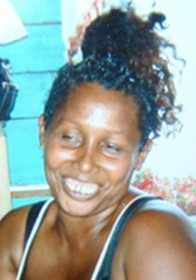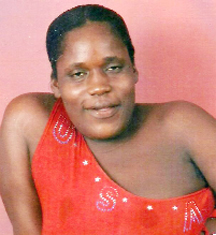`I am going to call everybody together and sit down, not each hospital but everyone together, and see what has been happening. And the Ministry of Health has to monitor’
Minister of Health, Dr Leslie Ramsammy yesterday said the recent spike in maternal deaths would make it the highest figure in the past six to seven years and he urged health officials to be more vigilant in ensuring that protocols are followed.

“This year would be the highest, not the highest in our history, the highest in the last six, seven years,” Ramsammy told reporters yesterday in an invited comment following the conclusion of a doctor’s scientific conference held at the Princess Hotel. In the early nineties and late eighties, the country saw about 40 maternal deaths a year, but in recent years it has been brought down to between 12 and 17.
“Our target this year was twelve and we are now at around eighteen,” Ramsammy said. He added that the country had been on target to achieve that goal up to September this year but there have been eight deaths since. Last year there were thirteen maternal deaths countrywide.
“So what you have, after a number of years, almost ten years of gradual decrease, we have a spike and the spike has happened in a short period because, in fact, up to September or so we were at a pace that would have been our best year ever and so suddenly this has happened and I am very disappointed…” the minister said.
He later stated that something has gone wrong in the health system which may have led to the deaths. “I am going to call everybody together and sit down, not each hospital but everyone together, and see what has been happening. And the Ministry of Health has to monitor,” Ramsammy said adding that in the early days he took on the role of monitoring but in the last few years he played the role of putting the mechanisms together.
Ramsammy said his ministry needs to better monitor what transpires at various hospitals as while the Chief Executive Officers (CEO’s) or head doctors at the various hospitals have to keep checking that mechanisms are being followed “who is making sure they are checking? It has to be the ministry of health.”
“My ministry has to be more active and yes, they all have plenty work to do but you need to go check that these things are being done. So when we say check the woman’s blood pressure every hour…that’s the rule. They are supposed to be checking… But if we are not checking them how would we know?”
The minister said they are finding out some “of these things only when there are problems and I am saying we shouldn’t wait for problems.”
Just last week two women lost their lives at the Georgetown Public Hospital (GPHC) bringing to eight, the number in recent months. Marion Bristol was transferred to the GPHC from the Linden Hospital Complex and died last Monday night after her baby girl was born while Monica Carmichael-who was transferred from the New Amsterdam Hospital-died last Wednesday afternoon after she delivered a still-born baby girl. Bristol was transferred because her baby’s heart rate was abnormal while Carmichael was transferred because her blood pressure was too high.
Major areas
According to Dr Ramsammy he had made maternal deaths “one of my major areas in terms of improving health in Guyana” coupled with child and infant mortalities. He stressed that one year cannot tell a story and if one should compare this period to another, they would realize that “we have done a good job.”
“But I believe also with all the things we have done we might have reached that stage where we have to figure out some other things…,” the minister said. He stated that eventually he hopes that Guyana would reach a stage where there would be just about eight deaths for every 10,000 deliveries which would work out to about 10 to 11 deaths a year.

“That is our millennium development goal. That is where we have to go, eight to eleven per ten thousands which would mean we are about eleven to fourteen deaths [per year]. And so we got there…but this is on the upper end of the range up to about thirteen but this year we have gone above it. So I don’t think we should be beating up on some of the health workers, we have to keep it in perspective that having achieved a good success rate something has happened in the last few months and we need to figure out,” the minister said.
He said that he does not know what has gone wrong to contribute to the recent spike even though he has his suspicions. He stressed that all in the health system need to be involved in reducing the maternal deaths. He recalled that at one time, Berbice had a very high rate of maternal deaths but for the last five years it was reduced. He suggested that those in the health sector go back to what they did then to “make it happen in Berbice.”
One of the systems put in place in Berbice-which Ramsammy credited with contributing to the reduction-was to ensure that a doctor was always present in the maternity wards and not to depend on the doctor at the Accident & Emergency sections. The minister admitted that this has not been happening at all of the hospitals and he said some changes would have to be made to ensure that systems are implemented. After a recent maternal death at the Skeldon Hospital, it was revealed that a doctor was not in the ward but rather was on call-something the minister said should not have been.
According to the minister most of the recent deaths at the GPHC were ones that were referred and “so there was little that they could have done” but he admitted that there were some deaths of patients who were admitted at that hospital.
Cabinet sub- committee
Following maternal deaths at the Skeldon Hospital, the officials at the institution were summoned to appear before a special Cabinet sub-committee in an effort to elicit answers about the deaths.
However, late last month, Head of the Presidential Secretariat Dr Roger Luncheon had said that the meeting “failed to deliver because the necessary reports on which some substantial evaluation would have been based were not forthcoming at that time.” The HPS had said that the reports were “slowly” being made available but “in the context of a national protocol those reports ought to have been available within a stipulated time frame after each maternal death and that was not so.” He had said while explanations were offered, none changed the reality that the reports were not available.
It was following that meeting that it was decided that the Cabinet sub-committee on health would play a meaningful role in the investigations into such deaths.
Instead of the buck stopping with the Ministry of Health, the sub-committee is now expected to play a major role in the ministry’s accountability as it relates to maternal deaths as opposed to being a “mere passive recipient of mail.”
“In essence… the closed sectoral consideration of maternal deaths has been dissolved and Cabinet sub-committee on health now has a defined role in the whole process,” Luncheon had told media operatives last month. Luncheon had said he met the Chief Medical Officer and the head of the Maternal and Child Health Department to ensure that “this new role of the cabinet sub-committee on health is properly integrated into the protocol that exists in the sector.”
Prior to the deaths of Bristol and Carmichael, the other women who lost their lives since September include GPHC nurse Charlene Amsterdam who died on October 24, two days after delivering a healthy girl. On October 20, another woman, 21-year-old Yogeeta Bishram of No. 60 Village, Corentyne died early that morning at the New Amsterdam Hospital (NAH) after delivering her second child; a healthy baby girl at the Skeldon Hospital.
Rebekha Chinamootoo, 26, of No. 36 Village, Corentyne died in September after giving birth to a healthy baby boy via c-section at the NAH. A teenager, Nadira Sammy (16 years) of No. 69 Village who was diagnosed with high blood pressure lost her life at the NAH before giving birth.
Also in the month of September, Aseelah Haqq, 33, of Middle Walk, Buxton, East Coast Demerara died while she was attached to a life support machine, hours after delivering her child. Ayesha Haqq said that despite instructions from a doctor that a Caesarean Section be done on her sister to deliver her baby, the woman was forced to endure normal labour.





